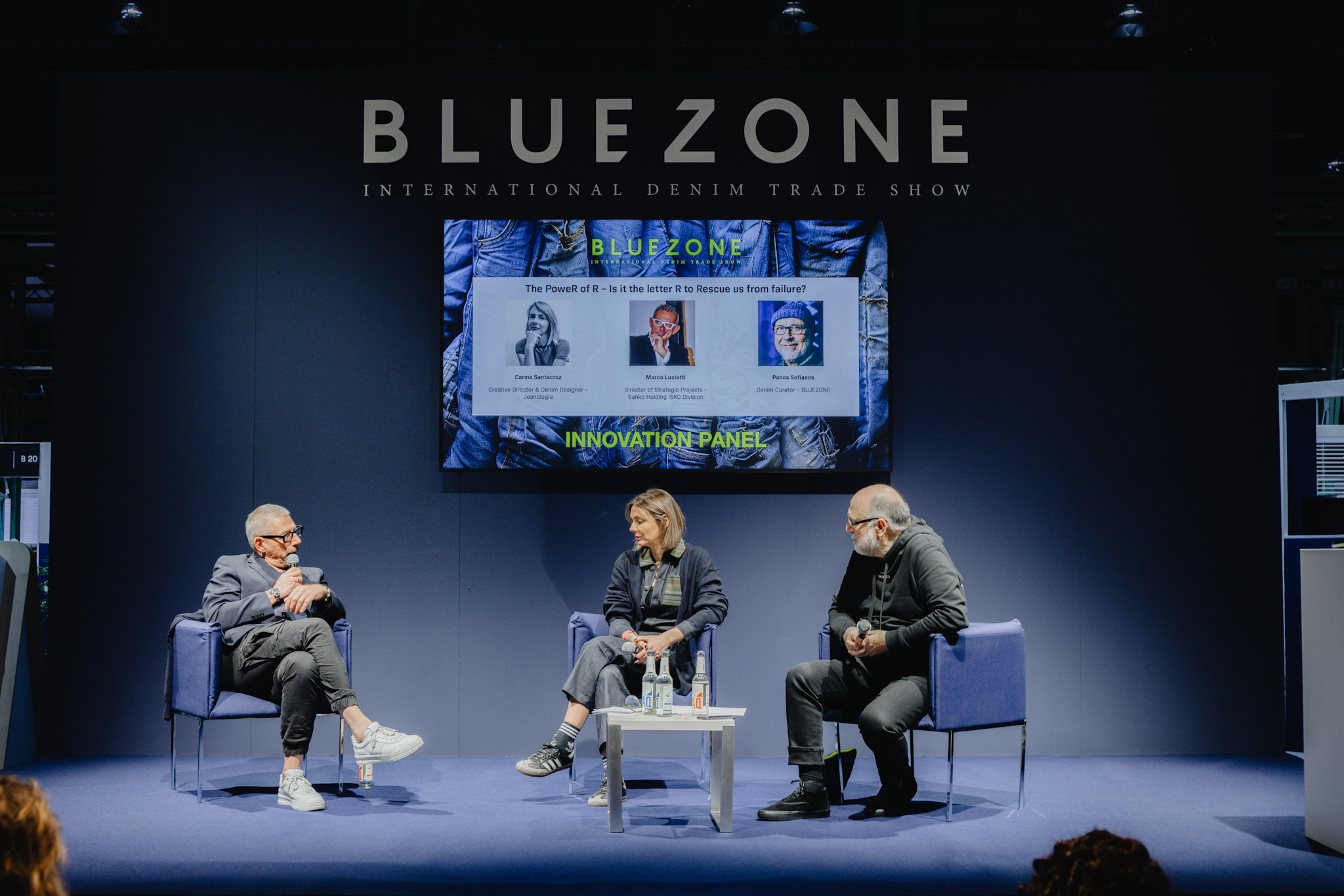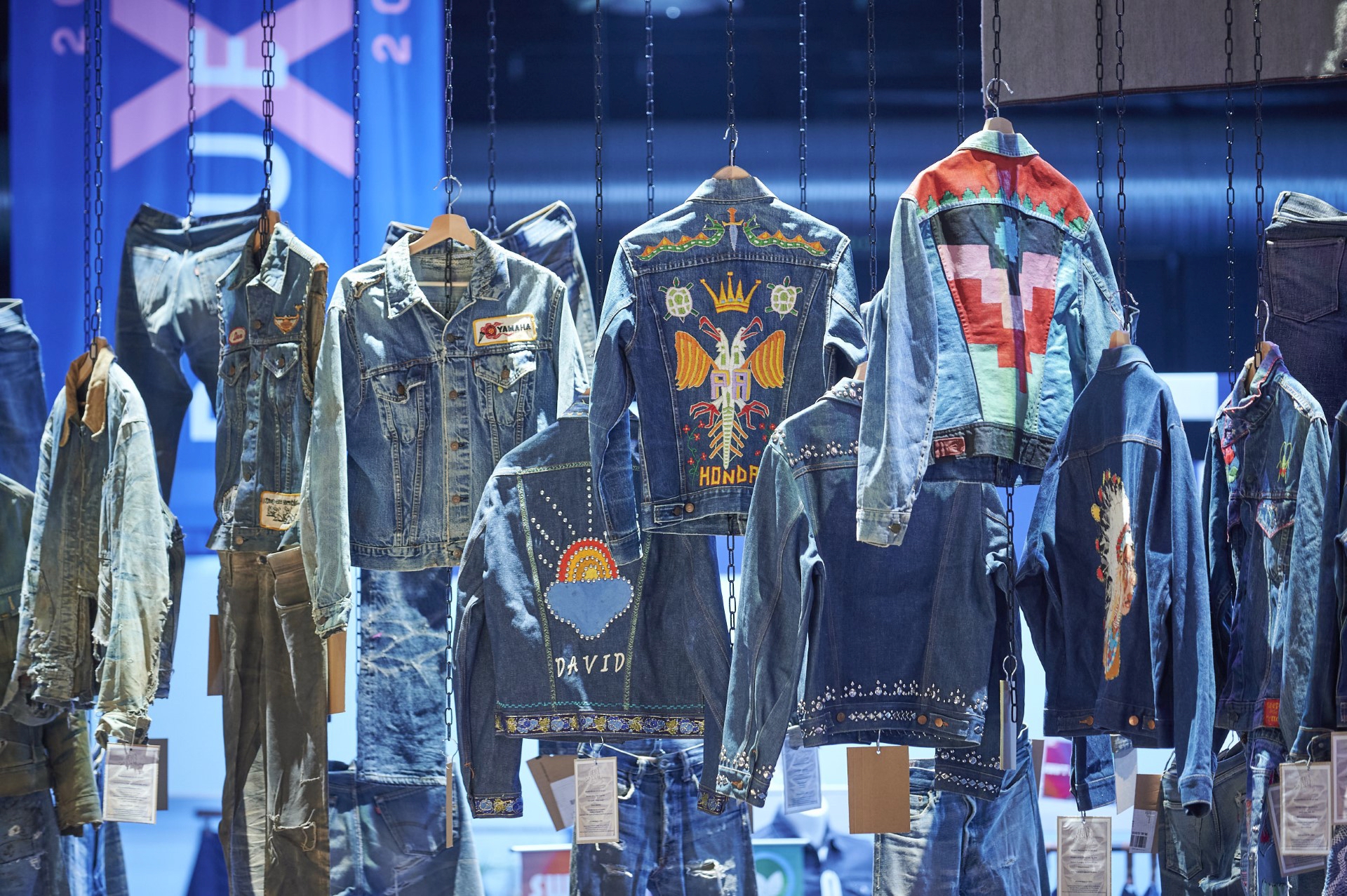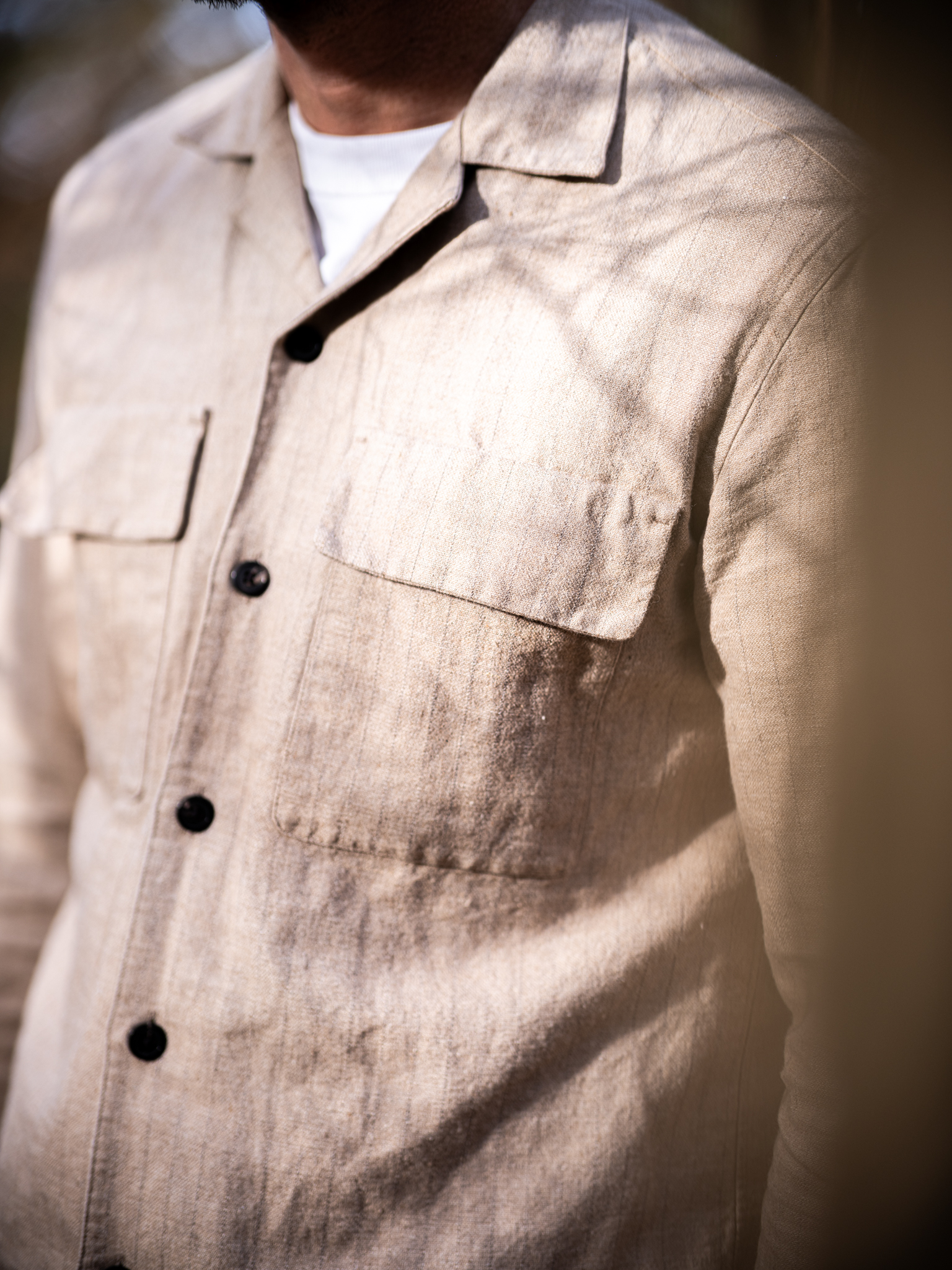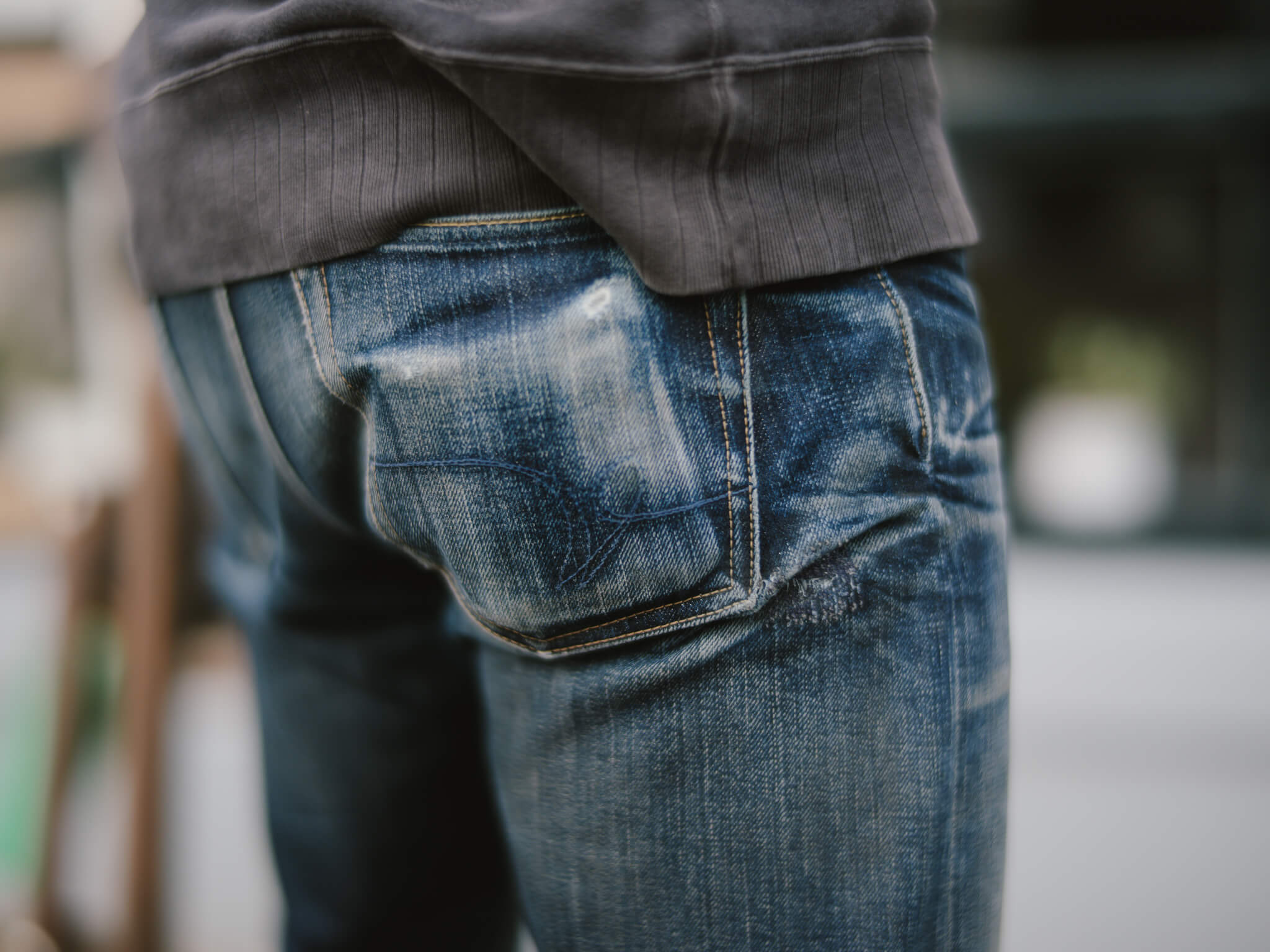The Bluezone Q&A introduces Jordan Nodarse
Name: Jordan Nodarse
Company: Bossa
Profession: Designer & Sustainability Consultant
Meet Jordan Nodarse, a dedicated designer at Bossa and a specialist in regenerative design processes. Thanks to his strong focus on sustainability, Jordan’s work revolves around promoting the use of recycled, organic, and regenerative cotton to craft innovative and eco-friendly designs.
Meet Jordan Nodarse, a dedicated designer at Bossa and a specialist in regenerative design processes. Thanks to his strong focus on sustainability, Jordan’s work revolves around promoting the use of recycled, organic, and regenerative cotton to craft innovative and eco-friendly designs.
Jordan’s passion for denim goes back to his high school years, when he sought jeans embodying the iconic styles of Bruce Springsteen and Mick Jagger. This led to a unique customization journey, as he began experimenting with vintage Levi’s and his mom’s sewing machine, which he later upgraded to a vintage industrial Juki. The experience sparked a passion and fueled his dedication to denim transformation.
Beyond being a denim expert, Jordan possesses a profound love for nature and dogs. Living in Los Angeles, he frequently embarks on outdoor adventures, whether it’s hiking alongside his four-legged companions or catching waves while surfing at the beach. Jordan’s preferred vacation destinations, including the Maldives, Mexico, or Fiji, offer the perfect setting for relaxation and rejuvenation, attracting him with their bountiful surfing opportunities.
We recently sat down with Jordan and talked about the world of denim and his place in it.
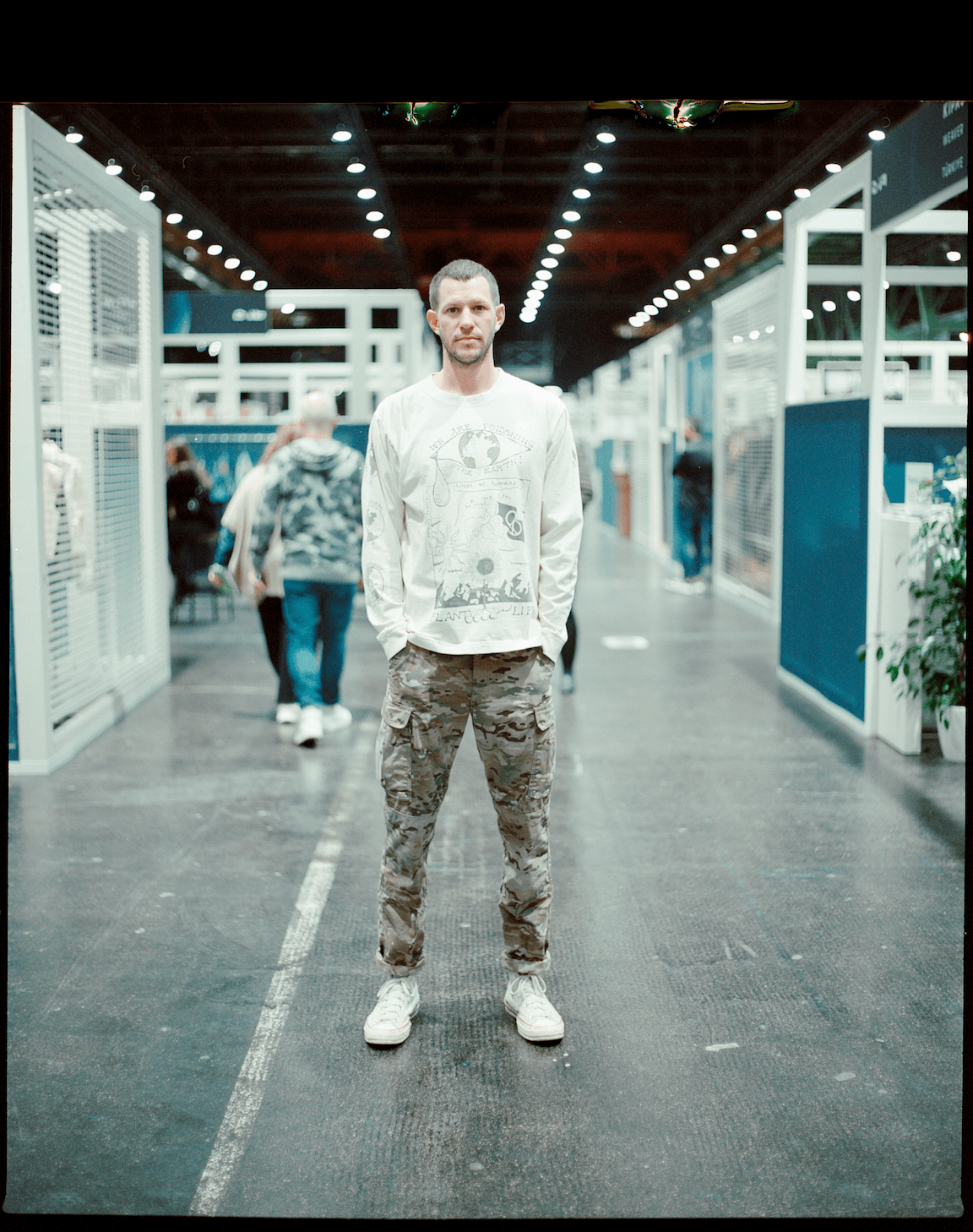 Photo courtesy of Koen Kuik.
Photo courtesy of Koen Kuik.
Q: Could you please briefly share your background, experience, and roles within the denim industry?
A: I co-created a brand, GRLFRND, before I began working at Reformation. Later, I founded Boyish. Currently, I focus on design and sustainability consulting, as well as educating fellow designers on the distinction between regenerative and traditional organic agriculture, emphasizing the importance of regenerative practices in carbon sequestration.
Q: What initially attracted you to the world of denim and what keeps you passionate about it?
A: In the early 2000s, I gravitated towards denim because I desired more fitted jeans in a market dominated by relaxed and boot-cut styles. I began reconstructing old jeans for myself and friends, and my passion for denim blossomed from there.
Q: Could you describe a typical workday in your professional routine, outlining the key activities and responsibilities that fill your schedule?
A: My day starts with a grounding meditation session to clear my mind. I then address emails, tape up vintage jeans as wash references, gather mood board inspiration, and review sustainability and regenerative agriculture-related documents, research papers, and presentations. Throughout the week, I engage in market research through online and in-store shopping, and I particularly enjoy hunting for unique finds in vintage shops in less populated cities. I like to conclude my workday with a yoga practice.
Q: From your perspective, which current trends and innovative advancements do you consider to be the most significant in shaping the denim industry?
A: I firmly believe that regenerative cotton is the future. Its unique process not only supplies a key ingredient for jeans but also reduces more carbon dioxide emissions than it generates.
Q: Looking ahead, what will be the denim industry’s largest challenges and opportunities?
A: The major challenges and opportunities lie in education and regulation, particularly regarding sustainability, circularity, upcycling, and regenerative practices. Bridging the gap between scientific understanding and design application will be essential.
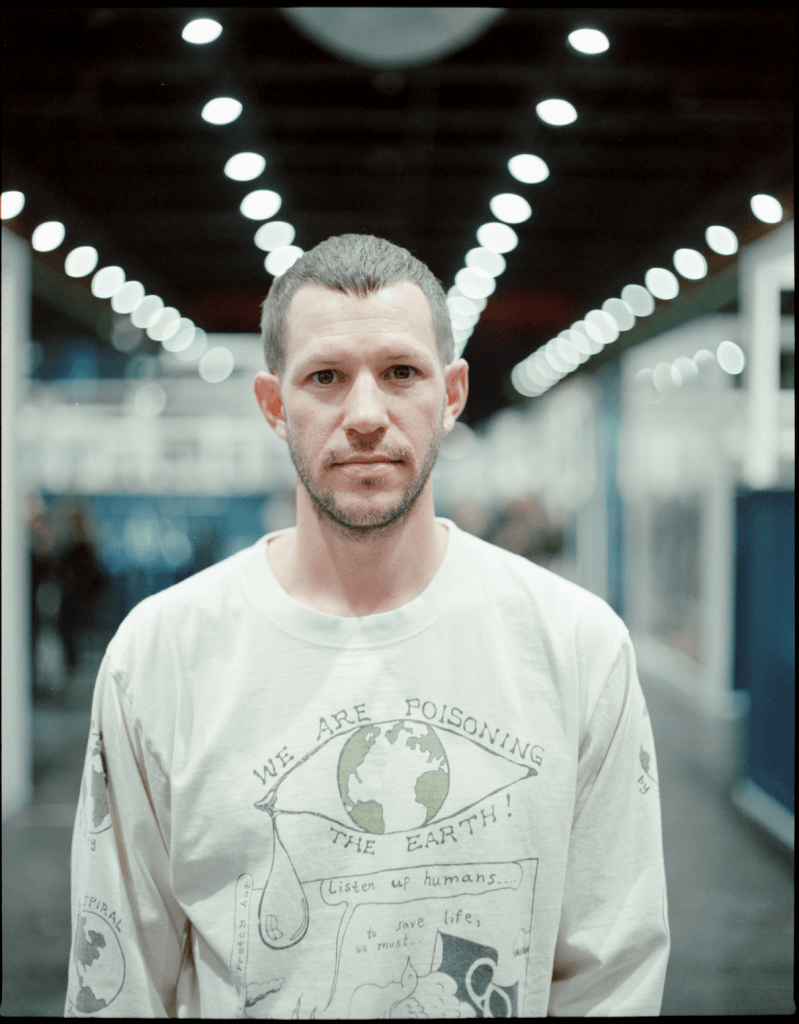
Q: If you had the opportunity to make a single change in the denim industry, what aspect would you choose to transform?
A: I would advocate for the implementation of a circular and natural-based fiber supply chain, encompassing recycling (both mechanical and cellulosic), regenerative organic farming, and the use of biological-based dyes and chemicals.
Q: In your experience, how has the denim industry evolved over the last 20 years? What significant changes have you observed?
A: Twenty years ago, only a handful of brands prioritized the use of organic cotton. However, I have witnessed a remarkable shift in the industry’s interest and commitment to making better choices throughout the supply chain. This spirit of innovation will continue to drive the denim industry toward a more regenerative future.
Q: What is your opinion of the Bluezone shows and their impact on the denim industry?
A: I thoroughly enjoy attending the Bluezone shows. They not only offer a great selection of vendors, they also provide valuable presentations and insights into sustainable technology, making a positive impact on the denim industry.
Q: As Bluezone celebrates its 20th anniversary, what message or sentiment would you like to convey to the organization as they mark this significant milestone?
A: Let us collectively prioritize the education of our youth, the next generation of leaders, to ensure they are well-informed about sustainable practices and equipped to shape a more environmentally conscious future for the denim industry.
—-
This article was commissioned by the international denim trade show Bluezone and is written by Robin Meijerink. With mutual agreement, the article has also been published on robindenim.com. You can find the original article here.
Did you know that Bluezone’s next show is on January 23rd and 24th in Munich? Learn more about Bluezone, here.
 Share
Share
 Tweet
Tweet
